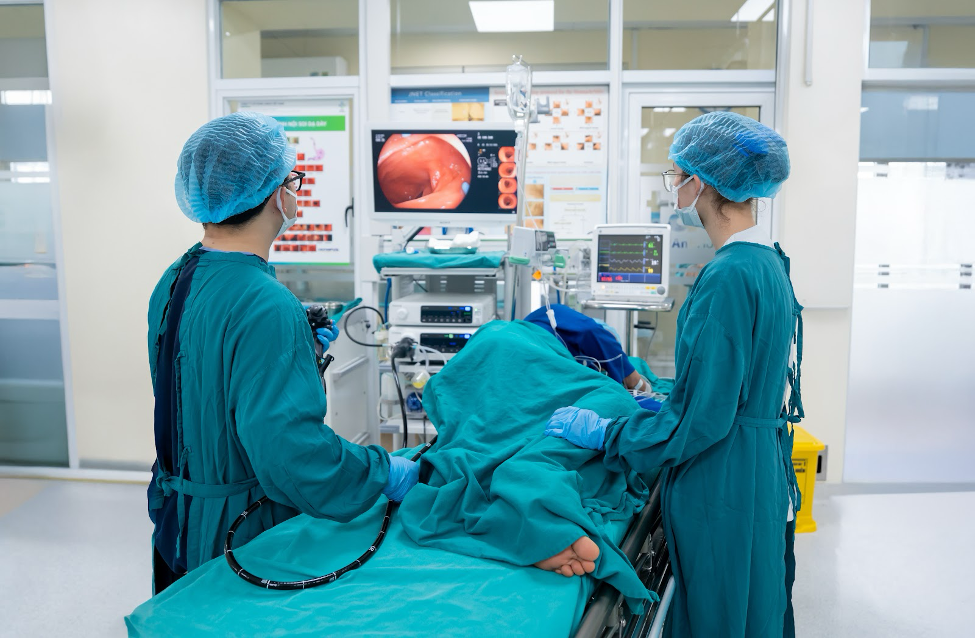Answer:
According to the Global Cancer Observatory (Globocan), colorectal cancer is the third most common cancer worldwide, with over 1.9 million new cases in 2022. In Vietnam, it is one of the five most common cancers and is increasingly prevalent among young people.
Colorectal cancer typically originates from small, initially benign polyps. A colonoscopy can detect these abnormalities and precancerous lesions early. If polyps are found, the doctor can remove them during the procedure, preventing their progression to cancer.
Colonoscopy, performed under short-term anesthesia (20-30 minutes), allows doctors to examine the entire intestinal lining and perform biopsies if malignancy is suspected. Modern colonoscopy systems offer magnification and image staining capabilities, enabling doctors to detect even very small lesions. Colonoscopy is currently considered the "gold standard" for colorectal cancer screening and prevention.
 |
A doctor performing a colonoscopy. Photo: Tam Anh General Hospital |
The risk of colorectal cancer in younger individuals (20-30 years old) is lower than in those over 40. Current guidelines recommend that healthy adults aged 40-45 undergo colorectal cancer screening every 5-10 years, depending on the results.
Screening age recommendations vary by country. Several Asian countries encourage screening from age 40. While Vietnam has no official recommendation, international experience suggests that individuals 40 and older should proactively undergo colonoscopies to detect esophageal, stomach, and colon diseases early.
Individuals at high risk, such as those with a family history of cancer or adenomatous polyps, a personal history of polyps or ulcerative colitis, obesity, smoking, heavy alcohol consumption, etc., should undergo earlier and more frequent colonoscopies. Other candidates for early screening include those under 40 experiencing symptoms like rectal bleeding, persistent changes in bowel habits, dull abdominal pain, or unexplained weight loss.
At 33, you are not yet within the recommended screening age. However, with frequent indigestion, you should consult a doctor for an examination. If any abnormalities are suspected, a colonoscopy may be recommended.
In addition to regular screenings, maintain a healthy lifestyle: eat plenty of vegetables, whole grains, limit red meat and processed foods, exercise regularly, quit smoking, and reduce alcohol consumption.
Dr. Vu Truong Khanh
Head of Gastroenterology - Hepatology - Pancreatology
Tam Anh General Hospital, Ha Noi
| Readers can submit questions about digestive diseases here for doctors to answer. |












